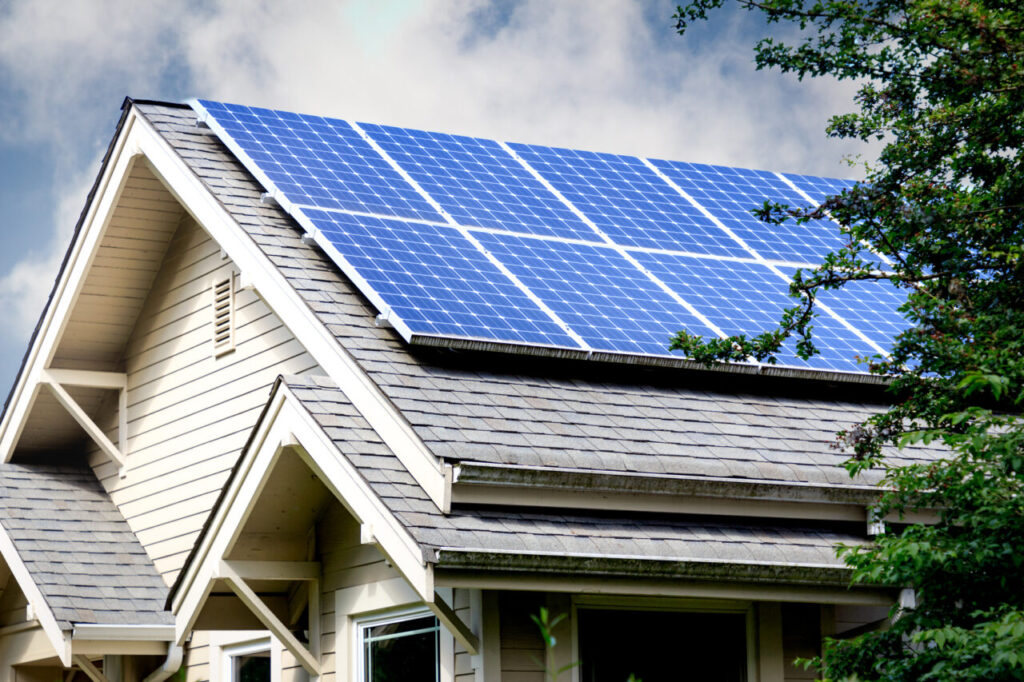More and more homeowners are considering adding solar panels to their homes. By now, it’s no secret: There are numerous benefits to adding solar panels, namely reduced energy costs and making an environmentally friendly choice.
However, adding solar panels does require a significant investment. According to Forbes, installing solar panels costs $16,000 on average. For many homeowners, the cost is worth it for the long-term savings, but it’s certainly a hurdle to consider.
Keep in mind, not every home will be a good fit for solar panels. By following these steps, you can determine whether solar panels are right for you as a homeowner and for the home itself.
Determine why you want solar panels
Getting solar panels means different things to different people. Some people install solar panels because they want to reduce their carbon footprint and be more environmentally friendly.
Others may be overwhelmed with energy bills and are looking for a way to offset their monthly costs. Some people might just be looking to increase the value of their home before selling.
Knowing your reasons for considering solar panels is important. Some homes might be better candidates than others due to their location, the position of the roof, and the presence of shaded trees.
An expert solar installer can let you know whether your house would benefit from solar panels and how much energy you can generate, depending on the type of home you have. They can also assess your location, including nearby trees and buildings, to see if solar panels would be a good fit long term.
Research solar installation companies
There are likely several companies in your area that offer solar panel installation. Take the time to research them, read their reviews, and ask for recommendations. If there are homes with solar panels in your neighborhood, speak to those neighbors to see which companies they used, and ask if they’re happy with the service they received.
Once you have several recommendations and have spent time researching companies, settle on two to three companies to call and schedule an appointment. Then, an agent from that company can come to your home, assess whether your home would benefit from solar panels, and give you a quote.
Keep in mind, there is more than one type of solar panel. Monocrystalline solar panels and polycrystalline solar panels are the two most common types, according to Forbes. The panels vary in terms of their affordability and energy efficiency. It would be helpful to work with a solar company that can give you a quote for both. That way, you can weigh your options and determine which is best for your finances and overall environmental goals.
Understand the financials
While you’re waiting for solar companies to assess your property and give you a quote, research whether there are government incentives you might be eligible for.
Sometimes, there are state tax credits and other perks that can reduce the overall cost of solar panels. Additionally, there are federal tax credits, such as the federal residential solar energy credit, which allow homeowners to claim 30% of the cost of installation on their taxes.
Speak to a licensed accountant prior to purchasing solar panels to ensure you meet the qualifications and take the necessary steps to qualify for a federal, state, or local tax credit — especially if you just moved in and are looking to offset the cost of real estate commissions.
Consider your future plans
It’s also important to consider how long you plan to stay in your home. Adding solar panels to your home can help you save on energy costs in the long term, but it’s an investment to set up. You likely want to enjoy your investment for a few years to enable your energy savings to offset your installation costs.
You can also speak to a real estate agent in your area to see whether adding solar panels can improve the value of your home.
Install and maintain your solar panels
If, after completing the steps above, you’ve determined that installing solar panels is right for you, the last step is to schedule an installation. On installation day, a solar company will mount the panels to your roof and connect your entire system.
It’s important to take the time to learn how your system works and where your panels will be. Work with your solar company and ask them what to look for in terms of any maintenance issues and when to call.
Develop a plan to service your solar panels and have them regularly checked. Again, although solar panels can save you on energy costs, there is an upfront investment when installing them. As such, it’s important to protect that investment with proper care.
Reducing Your Home’s Carbon Footprint: 6 Undeniable Benefits of Installing Solar Panels


